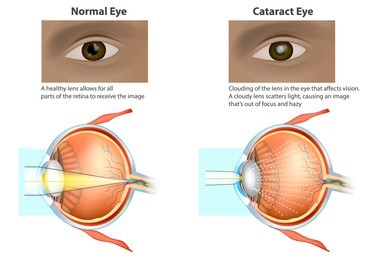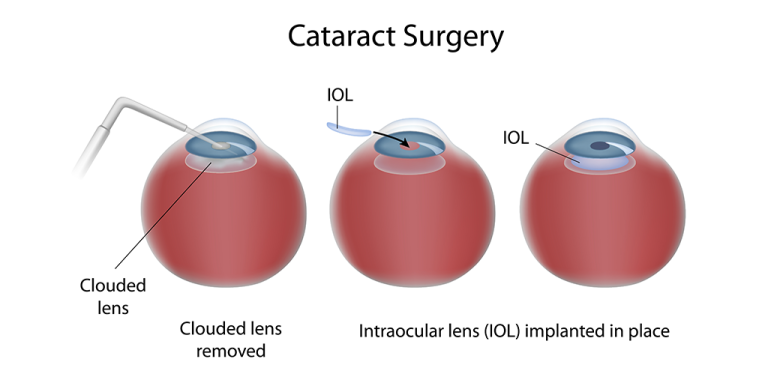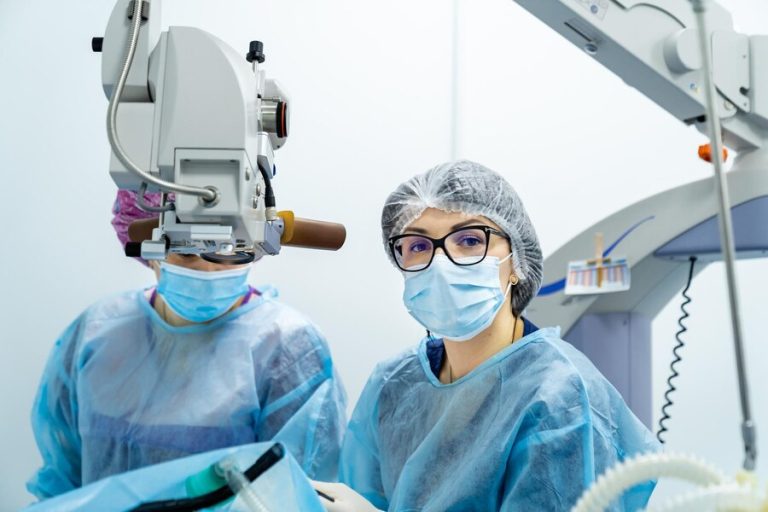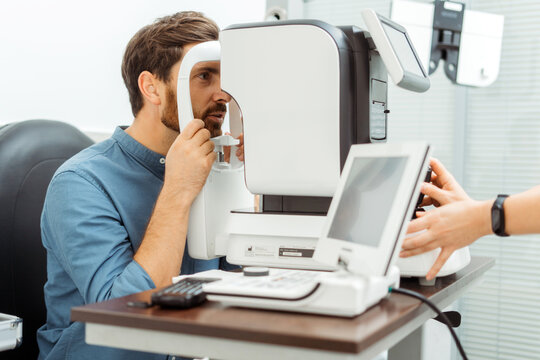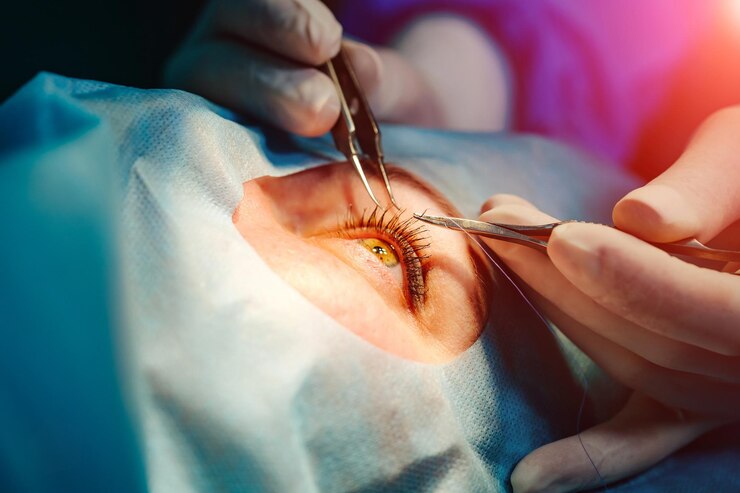Patient Satisfaction And Quality Of Life Outcomes In Cataract Surgery
Cataract surgery is one of the most common and successful surgical procedures performed worldwide. Beyond restoring vision, cataract surgery has a profound impact on patients’ quality of life (QoL) and overall well-being. In this article, we explore the relationship between cataract surgery, patient satisfaction, and quality of life outcomes, shedding light on the transformative effects of this intervention.
Understanding Cataracts and Surgery
Cataracts are a common age-related condition characterized by the clouding of the lens inside the eye, leading to blurred vision and decreased visual acuity. As cataracts progress, they can significantly impair daily activities such as reading, driving, and recognizing faces. Cataract surgery involves removing the cloudy lens and replacing it with an artificial intraocular lens (IOL), restoring clear vision and improving overall visual function.
Patient Satisfaction: A Key Metric
Patient satisfaction serves as a crucial indicator of the success of any healthcare intervention, including cataract surgery. Beyond objective measures of visual acuity and surgical outcomes, patient-reported outcomes play a significant role in evaluating the effectiveness of cataract surgery. Factors such as perceived visual quality, functional improvement, and overall satisfaction with the surgical experience contribute to patients’ subjective assessment of outcomes.
Quality of Life Outcomes
Quality of life encompasses various dimensions, including physical, emotional, social, and psychological well-being. Cataract surgery can have a profound impact on each of these domains, enhancing patients’ overall quality of life and enabling them to lead more fulfilling and active lifestyles. Improved vision following cataract surgery is associated with enhanced independence, mobility, and engagement in daily activities, fostering a sense of autonomy and well-being.
Research Insights
Numerous studies have examined the relationship between cataract surgery and quality of life outcomes, consistently demonstrating positive results. Research findings indicate significant improvements in visual function, mobility, and overall quality of life following cataract surgery. Patients report enhanced satisfaction with their visual outcomes, increased confidence in performing daily tasks, and a greater sense of social connectedness and participation.
Impact on Daily Activities
The benefits of cataract surgery extend beyond visual improvements, influencing various aspects of patients’ daily lives. Many individuals experience a newfound freedom and independence, as they regain the ability to drive, read, and engage in hobbies and recreational activities. Simple pleasures such as watching television, gardening, and spending time with loved ones become more enjoyable and fulfilling post-surgery.
Psychological Well-being
The psychological impact of cataract surgery cannot be overstated. For many patients, living with cataracts can lead to frustration, anxiety, and even depression due to the limitations imposed by impaired vision. Cataract surgery alleviates these psychological burdens, restoring confidence, optimism, and a sense of control over one’s life. Patients often report feeling happier, more content, and less stressed following successful cataract surgery.
Social Engagement and Relationships
Visual impairment can isolate individuals from social interactions and hinder meaningful connections with others. Cataract surgery facilitates social engagement by improving communication, facial recognition, and participation in social activities. Patients express gratitude for the opportunity to reconnect with friends and family, attend social gatherings, and enjoy a more active and fulfilling social life post-surgery.
Long-term Benefits and Sustainability
The positive effects of cataract surgery are not only immediate but also enduring. Research indicates that the benefits of improved vision and enhanced quality of life persist long-term, with patients continuing to experience positive outcomes years after surgery. Moreover, cataract surgery has been shown to have ripple effects on overall health and well-being, reducing the risk of falls, cognitive decline, and other age-related complications.
Conclusion
Cataract surgery is not just a vision-restoring procedure—it’s a life-transforming intervention that enhances patients’ quality of life and overall well-being. By alleviating visual impairment, cataract surgery enables individuals to lead more independent, active, and fulfilling lives. Patient satisfaction and quality of life outcomes serve as valuable metrics for evaluating the success of cataract surgery, reflecting the profound impact of this intervention on patients’ lives. As advancements in technology and surgical techniques continue to improve outcomes, the future holds even greater promise for enhancing the lives of those living with cataracts.
For any further queries, Plz visit drvivekgarg.in



